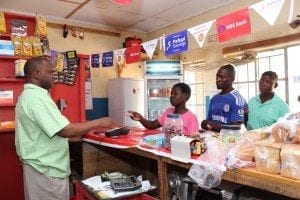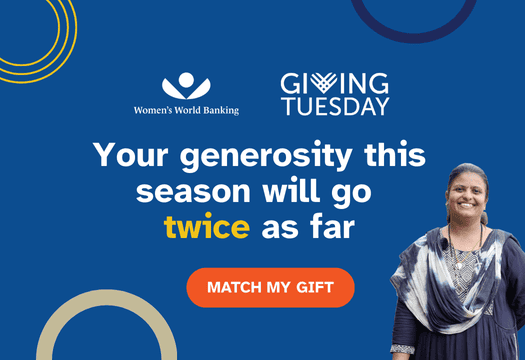When saving money in a bank requires long and expensive bus rides and comes with high monthly fees that can together total up to more than a customer can afford to deposit, it doesn’t make much sense to use banks to save. That’s one of the reasons why low-income customers in remote rural villages in Malawi use village-based savings groups to save their money. NGOs like CUMO Microfinance (a Malawi-based non-profit) administer these groups but it is the members who run the group which provide opportunities to save as well as borrow.
Members are delighted with the services organizations like CUMO provides, but a closer look by Women’s World Banking showed that savings groups do not always meet all of their customers’ financial needs. Members could benefit from a fuller package of financial tools to help them manage a variety of their requirements. Seeing an opportunity in this gap, Women’s World Banking conducted an in-depth research study with CUMO group members in conjunction with our partner and Malawi’s largest bank, NBS Bank in March of this year. The objective of the research was to understand group members’ unmet financial needs and how NBS Bank could complement the offering provided by CUMO.
The pros and cons of a local savings group
Started more than 15 years ago, CUMO grew into one of the country’s largest microfinance institutions by giving its more than 52,000 members – 80% of whom are women – a way to save and borrow without the prohibitive fees and transportation costs associated with formal banking. It operates mostly in rural areas, where no convenient options to save individually exist. The groups are encouraged to save weekly or biweekly and then lend the pooled savings to their members. Members “grow the pot” of savings by collecting interest on these loans. At the end of the four month cycle, all funds are returned to group members.
Overall, CUMO members report that the group saving and borrowing helps their families and businesses survive and thrive. A woman member from Zomba, a city in Southern Malawi described it like so: “We like CUMO because we can save money…that can be used by your children to go to school. You can buy school uniforms.” Another said, “I constructed a house with iron sheets with CUMO. I also have chickens at home which I got from CUMO [savings and loans].”
But it isn’t perfect. CUMO clients report that while groups generally work well, it can be complicated when a member needs money for an emergency or for a private purpose. In a savings group, financial issues tend to be public; everyone knows everyone else’s business, so there’s no privacy and little flexibility in what a member can do with his or her own money once it’s pooled. Additionally, clients face pressure from the group to keep those funds in the group savings pool so they can accrue interest: “If you are saving and there is a problem, if it is individual, then you can take your money, but you cannot do that anytime you want in the group.” Customers clearly see the value of having a private individual account, but did not have an option as accessible as the savings group… until Pafupi, that is.
Bringing the bank closer to her through Pafupi

Pafupi bank agents operate out of local shops within the communities they serve so they are easily accessible and low-cost. In most of the rural areas where CUMO administers groups, bank branches are sometimes located as much as two to three hours away. Offering Pafupi as an added-value product for CUMO groups would give members a secure, convenient option for individual formal banking alongside their group savings which they never had before. The savings accounts are also flexible as well as private: Pafupi clients can make small deposits or withdrawals anytime, without discussing their financial needs in public with a group. A CUMO client put it simply: “Individually you can go and save on your own, that is a good thing. If you have excess money…you have all the freedom to deposit in your account.”
A brand new partnership
As an outcome of the research, NBS Bank and CUMO will partner to offer Pafupi to the CUMO network of savings groups, with the support of Women’s World Banking. The initiative is a “win-win-win:” Customers gain access to a valuable new way to save, CUMO offers its members additional benefits and NBS Bank has an opportunity to greatly expand Pafupi’s reach into more rural parts of Malawi through CUMO’s sizable customer base. Ensuring that Pafupi accounts succeed with CUMO customers will require an investment in marketing and financial education. Currently, Women’s World Banking is working with the institutions to embed helpful financial education messages into marketing materials to train CUMO customers on how to use their new Pafupi accounts, like transacting with agents. The success of this initiative would represent further proof that in trying to achieve ambitious goals for women’s financial inclusion worldwide, innovative partnership approaches can accomplish more than any one institution can do on its own.
Both the Pafupi product and the linkage with CUMO received funding support from UNCDF MicroLead.




